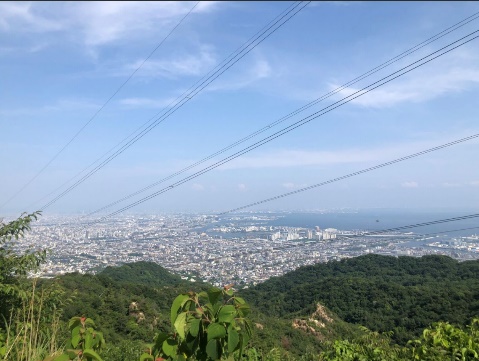The " Japanese Initiative for the future of Syrian Refugees (JISR) " implemented by JICA provides educational opportunities to Syrian youth who have been deprived of schooling opportunities due to the Syrian crisis, with the aim of "building peace in Syria, reconstruction after the end of the civil war, and developing human resources to serve as a bridge between Syria and Japan". Given the situation in their home country of Syria, many of the JISR participants aim to find employment in Japan after completing the JISR program. Therefore, they participate in Japanese language training for 8 months from the time they arrive in Japan until they enroll in graduate school, and after entering graduate school. After entering graduate school, they continue Japanese language studies while also focusing on research activities to obtain a master's degree and job hunting.
In this issue, we interviewed a JISR participant who has decided to start working in October 2024, and what they have achieved through the program.
You can read about their Japanese language training at the following link.
Q1. Please tell us about how was your Japanese language training in Hiroshima, and how you improved your Japanese after the program.
It was difficult to get used to the length and number of classes in the Japanese language training program in Hiroshima, but I think it gave me a good foundation for studying Japanese.
When I moved to Kobe to enroll at graduate school, I could only speak basic Japanese and sometimes had difficulty communicating in Japanese. However, thanks to the many people who actively talked to me during my daily life in Kobe, I was able to improve my Japanese language skills from basic to practical level. In addition, the people in Kansai were very friendly and easy to communicate with, and I feel that this helped me a lot to improve my Japanese language skills on a daily basis.
Also, by continuing to study the shadowing method that my teacher taught me during my Japanese language training, I became more conscious of my Japanese pronunciation.
Q2: How was your graduate school life?
It was very difficult to balance writing my master's thesis and studying Japanese in graduate school, but I feel that my supervisor supported me a lot. They gave me time to decide on a theme from the first day of my enrollment so that I could start working on my master's thesis right away, and to concentrate on my studies before the Japanese Language Proficiency Test.
In addition, a network of international students in the graduate school helped me mentally by allowing me to share information and help each other.

A view of Kobe from Mt. Rokko, a memorable place he visited.
Q3: Please share your message to JISR students who are doing job hunting or will do near future?
There are three things I would like to say.
The first is to have self-confidence.
During job hunting, you need to spend a lot of time and effort participating in business fairs, writing CV and preparing for interviews, but not every selection process goes well. Looking back on my own job hunting activities, I sometimes got depressed when I received rejection e-mails from companies I applied, and it was the most difficult part of my life in Japan.
However, my advice is that if you do not feel happy or sad about the results, continue to work hard. I believe that you will eventually be able to fulfill the career path you desire.
Second, choose companies that interest you.
I think it is important to make the most of opportunities to see a variety of companies at job fairs and other events to find companies that match your interests and future goals. If you find one, approach them proactively.
Third, connect the dots between your past experiences.
I always make a conscious effort to connect the dots between my experiences. In fact, I actively took classes not only in my major but also in other courses to deepen my perspective on my specialty and to connect the knowledge I had learned. I also feel that it is important to learn and experience things actively, as past experiences can be utilized in ways that I never expected at the time.
Editorial Postscript
It is not easy to simultaneously acquire a degree and learn Japanese and conducting job hunting in a culture and language different from your own. I was impressed by the fact that he is actively taking classes outside of his specialty to deepen his interests and concerns.
In addition, the advice to JISR participants reminded me the importance of never forgetting one's original intention and always continuing to learn once again.
Listening to his expectations for his life and work in the new place, I wish his great success in the future.




scroll